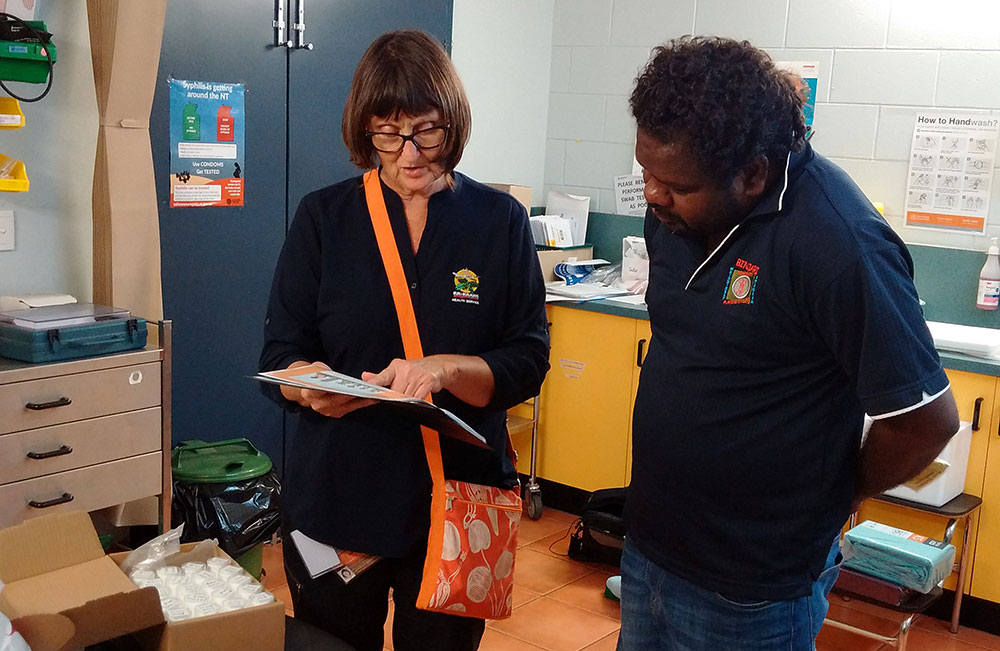Claudia Doman
8 June 2018: University of Canberra researchers are leading a new clinical trial investigating an Aboriginal bush medicine-based treatment and healing practices that could potentially cure a nasty skin condition, which can have fatal consequences.
The study, led by Assistant Professor of Pharmacy Dr Jackson Thomas and published this week in the British Medical Journal, is looking at providing evidence for a simple, affordable and effective scabies treatment for disadvantaged populations using a tea tree oil-based gel.
Scabies infection is caused by a mite and typically causes itching and a rash, but in some sufferers, it is linked to heart disease, kidney disease and bacterial infections. Approximately 300 million people worldwide contract scabies each year.
Scabies is a major public health problem in Indigenous Australian communities. In Australia, scabies affects about seven in every 10 Aboriginal or Torres Strait Islander children at any given time. This is more than seven times the rate registered in the rest of the developed world.
Scabies lesions often become secondarily infected with the bacteria Streptococcus pyogenes or Staphylococcus aureus. These bacteria can cause superficial skin infections, such as impetigo, or infections that affect the deeper layers of the skin, such as cellulitis.
However, they can potentially lead to fatal bloodstream infections, like septicaemia, or post-infection complications, including end-stage renal failure and acute rheumatic fever. Secondary bacterial infections associated with scabies can lead to substantial mortality as high as 26 per cent in affected children in remote Indigenous communities and is a cause of rheumatic heart disease.
“There is increasing resistance to many of the existing treatments for scabies and we hope that turning to a natural treatment might give us a new weapon in the arsenal,” Dr Thomas said.
“In our laboratory trials, this treatment has been found to be equally or more lethal to scabies mites than the gold-standard scabies treatments currently available in the market.”
He said that in contrast to the currently available treatments, the tea tree oil formulation may be the only treatment proven to possess combined antibacterial, wound-healing, scabicidal, anti-inflammatory and anti-itch properties.
This medication could potentially reduce the scabies burden and associated complications of secondary bacterial skin infections in Aboriginal children.
Dr Thomas said the trial is currently examining the clinical efficacy of this gel formulation under ‘real-world’ conditions, in young Aboriginal people living in rural and remote communities in the Northern Territory. The researchers are working in the communities with Wurli-Wurlinjang Health Service, a community-controlled Aboriginal medical service based in Katherine.
The trial involved 200 Aboriginal children, aged 5–16 years living in remote Australian communities, where rates of scabies infection are high.
“So far, we have had excellent feedback from community members and Aboriginal elders,” Dr Thomas said. “If successful, this treatment could bring relief to millions of people worldwide.”
Dr Thomas is working on this project with colleagues from the University of Canberra, University of Tasmania, University of Western Australia, University of the Sunshine Coast, Flinders University, University of Melbourne, Charles Sturt University along with health services in Queensland, the Northern Territory and the Australian Capital Territory.



